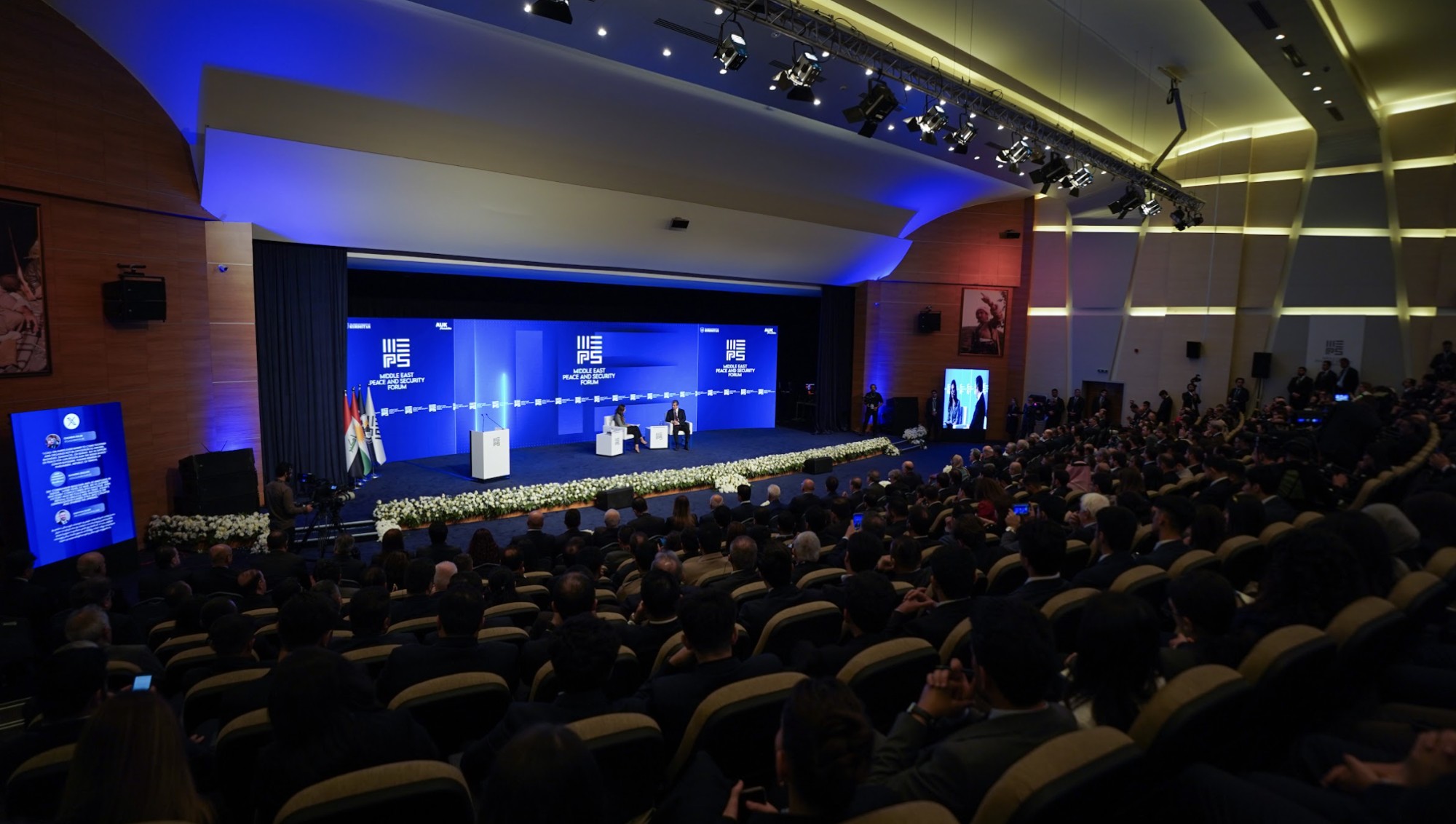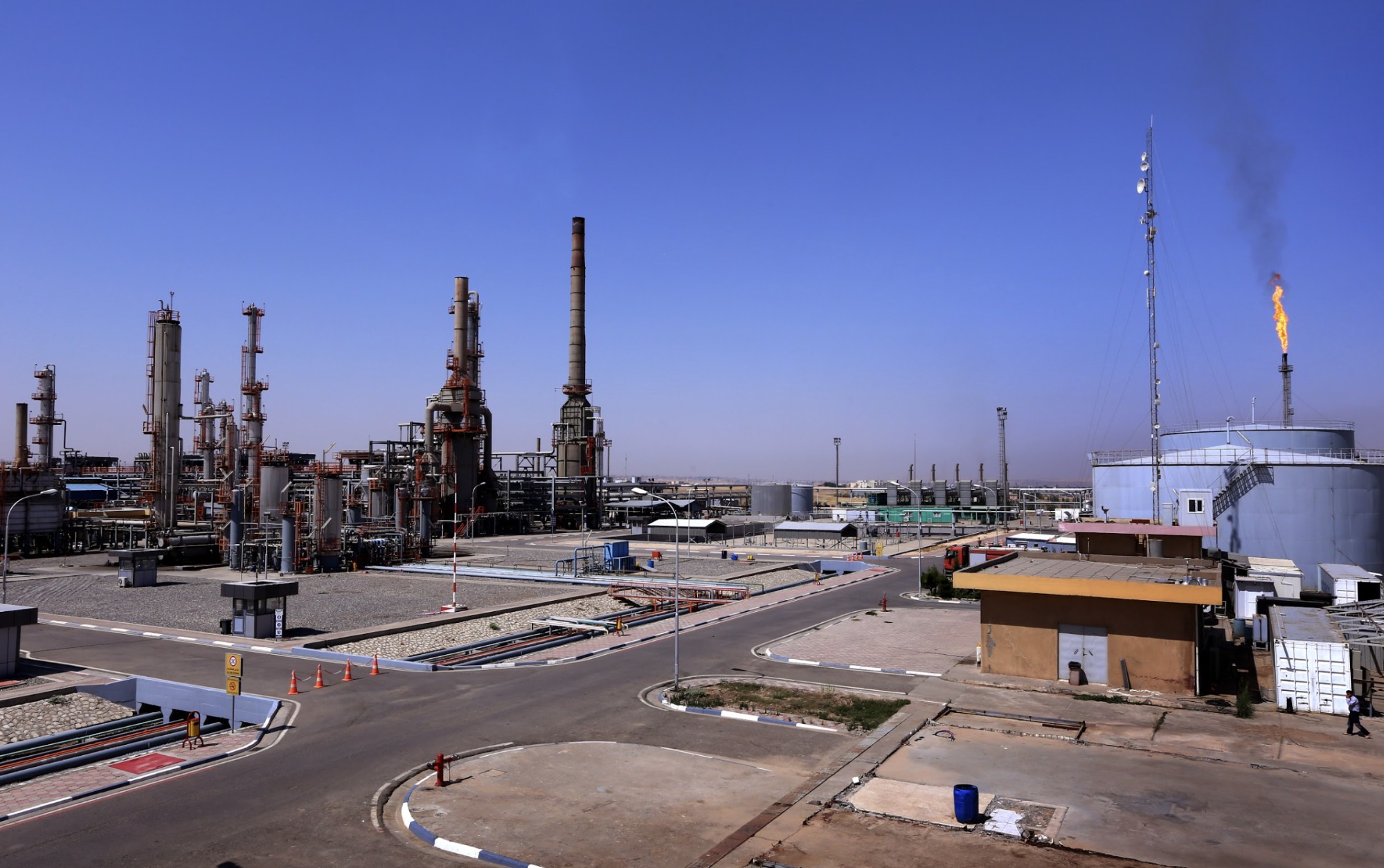Dr. Siyabulela Mandela, also known by his Thembu clan name Madiba, the great-grandson of South Africa’s historical and world leader Nelson Mandela, is currently a Visiting Professor at University of Kurdistan Hewler (UKH)’s Department of Politics and International Relations.
He will spend another five months in Erbil, hoping to teach a new generation of Kurdish leaders. “Education is one of the greatest tools that we can use to change the world,” Dr. Mandela said.
But coming to Kurdistan was about more than teaching. “The mere fact that I am here and chose to come to Kurdistan means that I support the Kurdish cause. I may not have been born a Kurd, but I consider myself a Kurd,” he told Kurdistan Chronicle in an exclusive interview.

A shared history of resistance
During Dr. Mandela’s first visit to the Kurdistan Region in March 2023, he saw the Halabja Monument and Peace Museum, which reminded him of the oppression of black people in South Africa by the apartheid regime. “You have to be really tough not to cry when you leave that museum. I’m thankful the Mayor of Halabja Nuxsha Nasih showed me around.”
“If you read the history of South Africa, we were close to being exterminated. There were already studies on biological warfare that the apartheid regime was going to launch against the black masses.” However, he said that the release of great grandfather averted those killings.
He said that the shared history of resistance between the Kurds and the black people of South Africa was among the reasons he decided to return to the Kurdistan Region this year to contribute to the development of the Kurdistan Region through education and give back to a people who stood with the South African people.
“I felt that sense that I was among the people whose history is similar to mine so far as the fight for their own independence, freedom, or self-determination. So, I was very much impressed with the people,” he noted.

Moreover, he explained how people in Africa do not know much about the Kurdish people. “They speak of the Arabic people, but they don’t speak about the culture or the language of the Kurdish people.”
Dr. Mandela said that in the past many people also did not know about the oppression of black people in South Africa until Mandela was released on February 11, 1990, after spending 27 years in prison. “If he had not been released from prison, very few people would refer to him as a role model today.”
“The Kurdish people and the people of Palestine in the Middle East stood with us when we were fighting for our own freedom and right to self-determination,” he said, adding that both groups had called for his great-grandfather’s release.
“They understood our pain, as they were going through the very same injustice as we were in South Africa at that time,” he said. “So, for me, now that we are free in South Africa, we should continue to support other groups that have not yet attained their own independence.”
Now, Dr. Mandela aspires to educate the future leaders of the Kurdistan Region. “To invest in the education of the younger generation, the future leaders of tomorrow, is one of the greatest things you can do.”
He aims to instill in young Kurds the significance of seeking alternative approaches to conflict resolution, emphasizing the value of compromise, reconciliation, and reconstruction.

Independence referendum
Dr. Mandela is a notable supporter of Kurdish self-determination and freedom. On September 25, 2017, under the leadership of then-president Masoud Barzani, Iraqi Kurds held an independence referendum, securing a 93% majority despite opposition from the majority of the international community, regional countries, and Baghdad itself.
“It’s no surprise that the international community did not support the Kurdish people in their fight for independence,” he said.
“If you remember, even Nelson Mandela and his generation faced rejection from the international community for a long time, with their liberation movement supported primarily by countries undergoing similar struggles, such as the Kurdish people and the people of Palestine.”
Moreover, he said that “Nelson Mandela for the longest time was considered a terrorist. But today the very same individual who was perceived as a terrorist is celebrated as one of greatest leaders that has walked the earth.”
He also explained how in the past many people thought that black people in South Africa would always be marginalized and denied their rights to self-determination. “But after waging a relentless struggle we were able to attain our freedom. If your own vision is to one day live in a country that is free, let’s say an independent Kurdistan, then it is possible,” Dr. Mandela said.

Why Kurdistan?
One of Dr. Mandela’s students at UKH was shocked that he chose to teach and live for a few months in the Kurdistan Region. “Why Kurdistan? Why not the United States or the UK?” one of his students asked him.
“I had to put things into perspective for him to understand that there is a reason why people go to certain areas,” he said.
“It’s not a question of just coming to teach. It’s a country that shares history with my own country, the common experience that we have shared. The vision has always been freedom and one’s right to self-determination. We achieved our own in South Africa, and we hope that the Kurdish people will one day attain their own freedom and right to self-determination.”
“Until then, those of us who are free must continue to support those who are not, until they are also free as well. For example, my great-grandfather, Nelson Mandela, refused to accept the International Ataturk Peace Prize given by Turkey in 1992,” he noted.
Nelson Mandela said at the time, “if you want to get to know the Turkish government, become a Kurd for one hour. My great grandfather understood the acceptance of that award would mean that, in a way, he supports and endorses Turkey’s position towards the Kurdish people,” Dr. Mandela explained.
“As a revolutionary leader and liberation figure he had to be able to stand his ground and say I am not going to Turkey to accept the award as a way to protest Turkey’s treatment of the Kurdish people.”
Moreover, Dr. Mandela really likes the Kurdish mountains and plans to visit them during weekends. “There’s an expression in Kurdistan: no friends but the mountains. I enjoyed the mountains, and I love hiking there as well.”
“When I say the Kurdish people are my people, I don’t say this just as a political statement. Even how they express their generosity and hospitality shows. In Erbil I am hosted by the Ozel family, who has shown an abundance of hospitality and kindness, I feel that I am at a home away from home,” he added. “Especially because I have read a bit about the Kurdish people and the history of the Kurdish resistance, for me it was like, in a way, coming home. I did not feel that I was in a new environment.”
“Even the students at UKH make me feel at home,” he emphasized. “I don’t feel like a visiting professor, I feel like a part and parcel of the community. It’s just been an amazing experience so far, and I’m looking forward to the next five months and the impact that hopefully I will have on the students,” he concluded.

